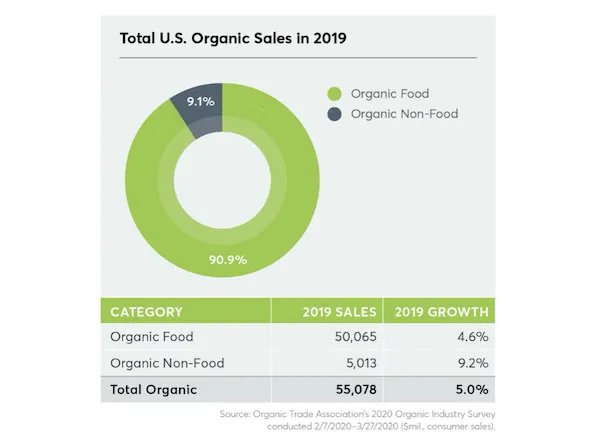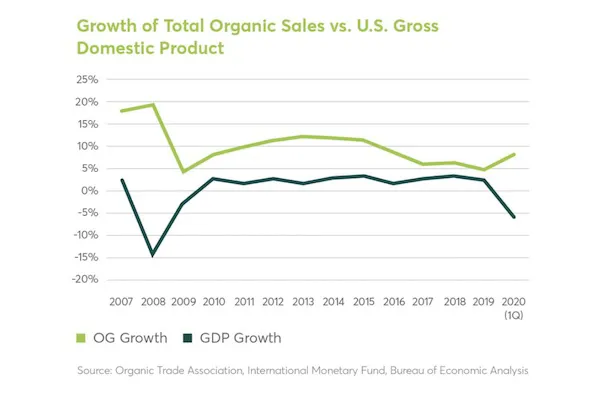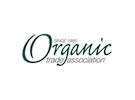The unprecedented COVID-19 pandemic this year – and its enormous impact on everyday lives – has already had dramatic consequences for the organic sector in 2020. As shoppers search for healthy, clean food to feed their at-home families, organic food is proving to be the food of choice for home.
Never before has the food provide to families been more important, and consumers have turned to the trusted Organic label. Many solid-growth organic categories have seen demand exploding. Organic produce sales for one, after jumping by more than 50 percent in the early days of kitchen stocking, were up more than 20 percent in the spring of 2020. Packaged and frozen organic foods saw double-digit growth as consumers upped at-home meal preparation.

Today’s interest in organic may be intensified, but organic’s growing popularity isn’t new. Consumers are eating more organic food and using more organic products than ever before, according to the 2020 Organic Industry Survey released Tuesday by the Organic Trade Association. The U.S. organic sector posted a banner year in 2019, with organic sales in the food and non-food markets totaling a record $55.1 billion, up a solid 5 percent from the previous year. Organic food sales hit $50.1 billion, up 4.6 percent.
In the early stages of the COVID-19 outbreak, the Organic Trade Association undertook a multi-pronged effort to look not only at shifting patterns in organic shopping since the crisis began, but to gather intelligence on the overall retail landscape for organic, and on the organic supply chain: where the supply chain is holding together and where it is being challenged. The association worked with Mercaris Data Service and Category Partners strategic insights company to put together the latest insights and outlooks for the organic sector.

The association also conducted an online flash poll of 3,188 “likely organic” shoppers in late April and early May. More than 90 percent of respondents indicated that in their current food shopping, organic is more important than ever.
“It’s hard to know what’s ahead of us, but consumers will continue to trust in and depend on the Organic label,” said the Organic Trade Association’s Batcha. “Organic producers and processors – indeed the entire organic supply chain – have been working around the clock through this difficult time to keep our stores filled with healthy, toxic-free and sustainably produced organic food and products. Organic is going to be there for the consumer.”

To read the full article by the Organic Trade Association, click here.
 For more information:
For more information:
Maggie McNeil
Organic Trade Association
Tel: +1 (202) 615-7997
Email: mmcneil@ota.com
www.ota.com
